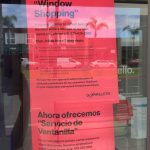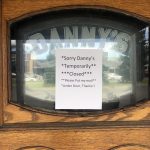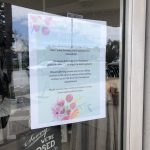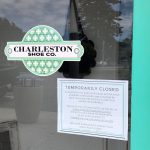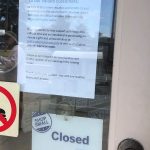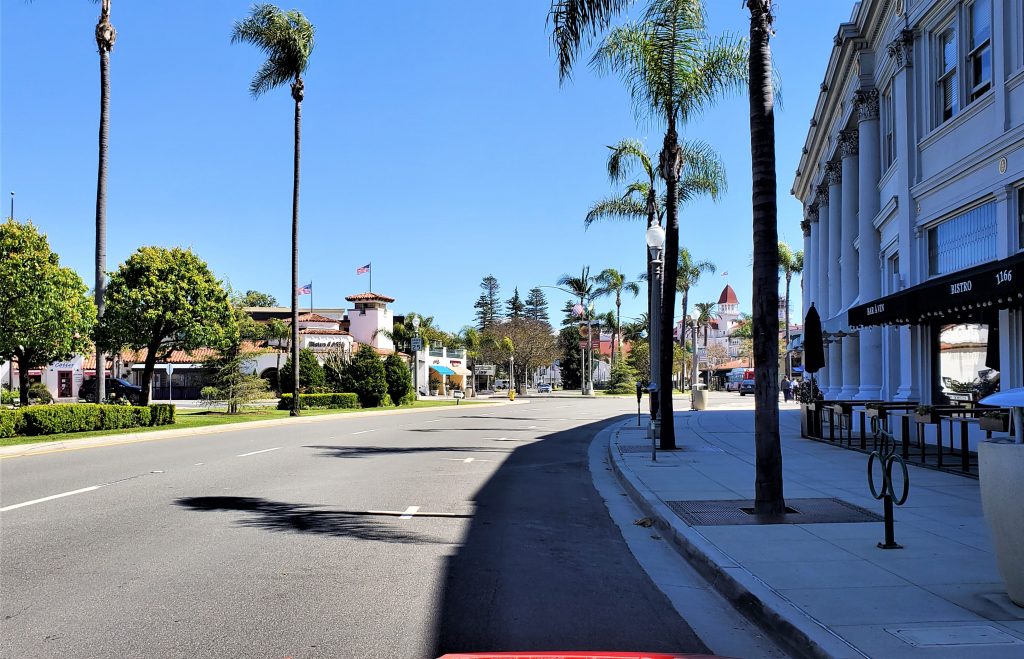 On a sunny April afternoon, a dramatic change is evident on Orange Avenue. Instead of the spring crowds that normally flock to Coronado this time of year, the business district is practically a ghost town with few cars or people. This is a dire time for local small businesses and restaurants, with many owned by residents, who are now struggling to find a way to keep their businesses afloat.
On a sunny April afternoon, a dramatic change is evident on Orange Avenue. Instead of the spring crowds that normally flock to Coronado this time of year, the business district is practically a ghost town with few cars or people. This is a dire time for local small businesses and restaurants, with many owned by residents, who are now struggling to find a way to keep their businesses afloat.
Just the mere fact that the iconic Hotel del Coronado, the 132-year main stay of the City’s tourism cog, has had to shutter its doors for an indefinite period, is stunning and a huge blow to the economy and city revenues via Transient Occupancy Tax (TOT) and sales tax. These numbers are estimated to be down $10 million from city projections.
 Even the businesses that have remained open are doing a fraction of normal sales. Locals have eagerly supported local restaurants by purchasing take-out food, but it is still not enough. Blue Bridge Hospitality owner, David Spatafore, recently commented that the way it’s going is “not sustainable.” Coronado thrives on tourism and tourist revenues, especially in the spring and summer, and now that businesses are closed, it’s vitally important to look forward to figure out how after this pandemic is over, we can still have a vibrant downtown for locals and visitors.
Even the businesses that have remained open are doing a fraction of normal sales. Locals have eagerly supported local restaurants by purchasing take-out food, but it is still not enough. Blue Bridge Hospitality owner, David Spatafore, recently commented that the way it’s going is “not sustainable.” Coronado thrives on tourism and tourist revenues, especially in the spring and summer, and now that businesses are closed, it’s vitally important to look forward to figure out how after this pandemic is over, we can still have a vibrant downtown for locals and visitors.
Federal, state and local governments are coming up with plans on what the roll-out of getting back to normal will look like. But no one has all the answers in this unprecedented time. Governor Newsom has not determined a re-opening date for California, but has said that the future will most likely require restaurants and stores to operate at reduced capacities and workers to wear gloves and masks, with possible temperature check stations. He has formed a Regional Pact to Recovery with Oregon and Washington to restart public life and businesses to determine what the new normal will be to keep everyone safe.
Coronado city officials and councilmembers have been discussing what can be done locally to help our businesses and have come up with recommended criteria for a loan program that they hope to finalize at the next city council meeting. But Councilmember Whitney Benzian is advocating to help local businesses sooner rather than later. “I am frustrated that we are discussing this for a third time. We should’ve acted at the last meeting. Now is the time! These businesses didn’t fail. Their businesses were essentially taken from them by no fault of their own. I understand that there are federal funds available, but it takes time to get those monies.”
Coronado Chamber of Commerce Executive Director Sue Gillingham says, “There are so many unknowns right now. We hope that the federal government will make good on their promises with the PPP and EIDL loans/grants.” The Chamber has done an outstanding job of keeping restaurant take-out information updated, even featuring a bingo game offering prizes to residents who participate by supporting local eateries. Benzian says, “We need the community to come together and voice their opinion to let the council know that they support a business loan program now. We don’t want to have a regret of waiting too long, to find Orange Avenue retail spaces empty when this pandemic is over. At that point, stores will most likely be replaced with non-locally owned and chain stores.”
Benzian has lived here all his life and has seen a multitude of changes through the years. He feels it’s not worth risking our vibrant downtown; because it will take time to reopen, and a while for people to feel comfortable travelling again. “The businesses need a lifeline, if they have any hope of staying in business. It will likely be 2021 before things are hopefully back to normal,” he comments.
“I realize the city has a lot on its plate right now, so I think immediately selecting a local experienced director of small business relief, working with a loan committee comprised of a councilmember and two or three local retired business people, would make the taxpayers feel comfortable with how funds are given out. I have discussed this with knowledgeable people, and they have ideas on how to expedite this as a short-term lifeline.”
Benzian has spoken with local retail shop owners, restaurants, and landlords and they are all seriously struggling to keep going with rent, employee and other costs. Coronado MainStreet Executive Director Rita Sarich says that she has encouraged the city to establish a grant program to help in this unprecedented time. MainStreet has also been providing ongoing relief information to local businesses.
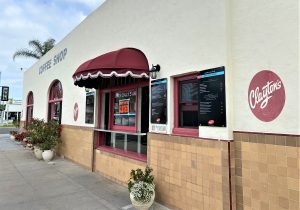 “We don’t want to lose the fabric of our community from the retail shops, restaurants, gyms, barber shops, nail salons, hotels and more. They are part of our unique village and we need to make this strategic investment now to help businesses survive for the long term when we all ramp back up,” Benzian concludes.
“We don’t want to lose the fabric of our community from the retail shops, restaurants, gyms, barber shops, nail salons, hotels and more. They are part of our unique village and we need to make this strategic investment now to help businesses survive for the long term when we all ramp back up,” Benzian concludes.




